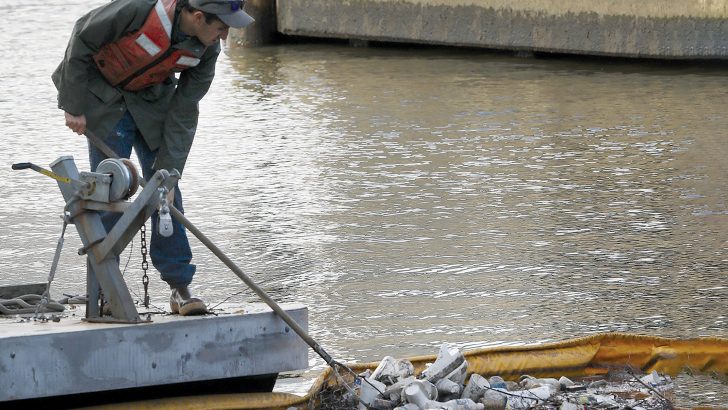We cannot continue to see the planet and its resources as things for us to use as we wish writes Fr Hugh O’Donnell SDB
Twenty years ago, in response to our ‘disfigurement’ of the earth, Pope John Paul talked of humans standing at the edge of an abyss. The only way we can avoid going over the edge, he said, is by undergoing “a profound ecological conversion”. This phrase of his was new; I had never before heard faith and creation linked together in such a telling and compelling phrase.
Traditionally, we have felt the need to keep nature down in order to see Christ and our ‘spiritual selves’ more clearly. By doing so, we diminished and humiliated creation to such an extent that it lost its soul for us and became just a giant resource – ‘stuff’ to be mined, exploited, owned, dissipated and fought over. It was, we concluded, all there just for our use and benefit, having no other value of its own. However, to look at any creature with attention or affection leaves us in no doubt that it has its own way of being fully alive and, in a lovely phrase of John Feehan’s, “is made with the same loving care as we are”.
Since the arrival of Laudato Si’ On Care for Our Common Home, it is clear that we can no longer make this demeaning split between nature and spirit, between other creatures and ourselves, now that we realise that everything is interwoven. In other words, we are not only human beings but ‘interbeings’ as well.
There are two books of revelation, Pope Francis is saying, (and this may be new and challenging for us!). One written in the diversity of the natural world that sits alongside our more familiar inspired scriptural text. The urgent task for Christians today is to learn how to read what God is saying to us in the languages of creation – as soil, food, water, habitat – to learn the sacred alphabet of interconnection and interdependence. We cannot be without everything else!!
It is only slowly dawning on us that every creature gives praise to God by its very being. Furthermore, that each one tells us something about God (The natural world as an icon of the sacred!). This, too, is new for us but at the same time, wonderful and exciting. It means that when we praise God with our lives and in our liturgy, we are doing so together with every other creature from bacteria to worm to whale; “all God’s creatures have a place in the choir”.
This radically changes our perspective as we come to celebrate the Eucharist. Firstly, we are celebrating “on the altar of the world” (Pope St John Paul). Secondly, we are in communion in the widest sense. The bread and wine have come from the earth and it is in and through these harvested fruits that the closeness of Christ to us and to all is so beautifully revealed; from earth to Christ and from Christ to earth. “In this piece of white host”, writes Pope Benedict, “creation aspires towards divinisation, towards union with the Creator” (Corpus Christi, 2006).
Rather than threaten, this new understanding will enlarge and enrich our faith. It will help us to appreciate Incarnation in its widest (and accepted) sense as God’s self-communication to all creation, something expressed so eloquently and uniquely for us in Jesus of Nazareth, “in whom the fullness of God was pleased to dwell”.
It also helps us appreciate that Christ is both Saviour and Lord of Creation. In other words, he is not only the Christ of the humans but of the whole cosmos! That is why Pope Francis can say that when we celebrate the Eucharist we are holding our planet dear. We are giving thanks for this total embodiment of God’s love (of which we are a part!). And giving thanks with the multitude of voices “whose language is not our language”, (R. S. Thomas, “Blackbird”).
Furthermore it helps us understand that when we celebrate the Eucharist, the bread that we break together commits us to the earth and to the poor. For it is there that we find the energy to give a resounding ‘yes’ to save all that is threatened or treated with contempt. Then filled with the Holy Spirit, we go out to wash the feet of every creature in imitation of Christ who came “not to be served but to serve”. Our serving must not stop at the boundary of our own species for every creature is a sister, a brother, a neighbour. There is no more appropriate place for our ecological conversion to begin than here at the Eucharistic table in communion with each other, in communion with all creation.
Fr Hugh O’Donnell SDB is a Salesian ministering in the parish of Our Lady of Lourdes, Sean McDermott Street, Dublin.


 A worker collects rubbish in a containment along Baltimore’s Inner
Harbour. Pope Francis’ 2015 encyclical Laudato Si’: On Care for
Our Common Home was widely lauded for its scope on the moral
and ethical response to protecting Earth’s environment for future
generations.
Photo CNS/Bob Roller
A worker collects rubbish in a containment along Baltimore’s Inner
Harbour. Pope Francis’ 2015 encyclical Laudato Si’: On Care for
Our Common Home was widely lauded for its scope on the moral
and ethical response to protecting Earth’s environment for future
generations.
Photo CNS/Bob Roller 